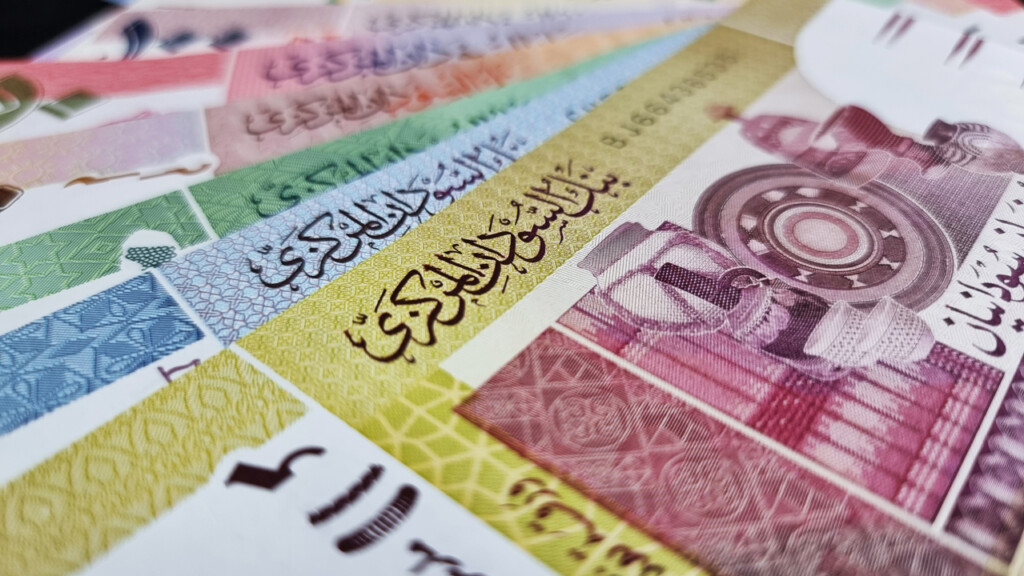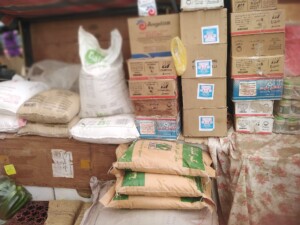‘Economic freefall’ as Sudanese Pound plummets amid ongoing conflict

Sudanese banknotes (File photo: AMB / RD)
In the wake of the protracted armed conflict that erupted on April 15, the Sudanese Pound (SDG) has experienced a sharp decline against the US Dollar, reaching unprecedented lows, since last week. The exchange rate in the parallel market skyrocketed to SDG1090 for selling and SDG1080 for purchasing, a stark contrast to the pre-war rates of SDG580 and SDG570.
Despite the government’s efforts, notably the October measures by the Central Bank of Sudan (CBoS), to control currency fluctuations, including restricting transfers through banking applications, the Sudanese Pound continues its downward spiral. The cessation of salary payments to numerous civil servants as well as the redirection of funds towards the war effort, have failed to yield positive results.
Financial strains on the CBoS are evident, with a significant depletion of foreign currency reserves. To meet their foreign currency requirements, government institutions and businessmen are compelled to resort to the parallel market, exacerbating the currency depreciation.
The war’s impact on the Sudanese economy has been profound, with experts asserting a staggering 100 per cent depreciation of the Sudanese Pound in just eight months. The war is identified as the direct catalyst for the current economic turmoil.
As the conflict intensifies, both sides face substantial expenditures on salaries, incentives for fighters, and essential supplies like food, medicine, and military equipment. The defence industry’s cessation further increases the demand for dollars, not only within Sudan but also in the UAE’s currency exchange markets, a key financial outlet for Sudan’s external transactions.
The war has disrupted Sudan’s oil production and transportation, leading to a reliance on importing all oil derivatives from abroad. The private sector, struggling to obtain foreign currencies at official rates, resorts to the parallel market, escalating costs.
Exports, traditionally passing through established channels, now take alternative routes due to decreased production. Smuggling has become a common practice to evade high duties, resulting in export revenues remaining outside Sudan’s official banking system, causing an estimated loss of $3 billion since the war’s outbreak.
The prolonged conflict compels Sudanese, especially those displaced or residing outside the country, to sell real estate and assets to cover living expenses. This contributes to a remote and intermediary-driven market for selling properties, causing a significant decline in prices.
Businesses, faced with economic instability, are relocating outside Sudan. Some entrepreneurs are contemplating dismantling factories and establishing operations in neighbouring countries, resulting in substantial economic losses, and exacerbating the trade deficit.
The market witnesses an influx of counterfeit banknotes, circulating alongside accusations that the Rapid Support Forces may be involved in their production. The increased money supply contributes to inflation and diverts potential export revenues, further impacting the economy.
Adding to the economic challenges, a diplomatic crisis with the UAE threatens to cast a shadow over Sudan’s economy. Observers anticipate potential punitive measures by the UAE, impacting Sudanese banking operations, funds deposited abroad, and commercial activities on Emirati territory.
The dire economic situation in Sudan, particularly the freefall of the Sudanese Pound, is intricately linked to the ongoing war. Immediate measures to address the root causes and an end to the conflict are imperative for any hope of stabilising the economy and initiating meaningful reforms. The road to economic recovery for Sudan hinges on a resolution to the protracted and devastating war.











 and then
and then